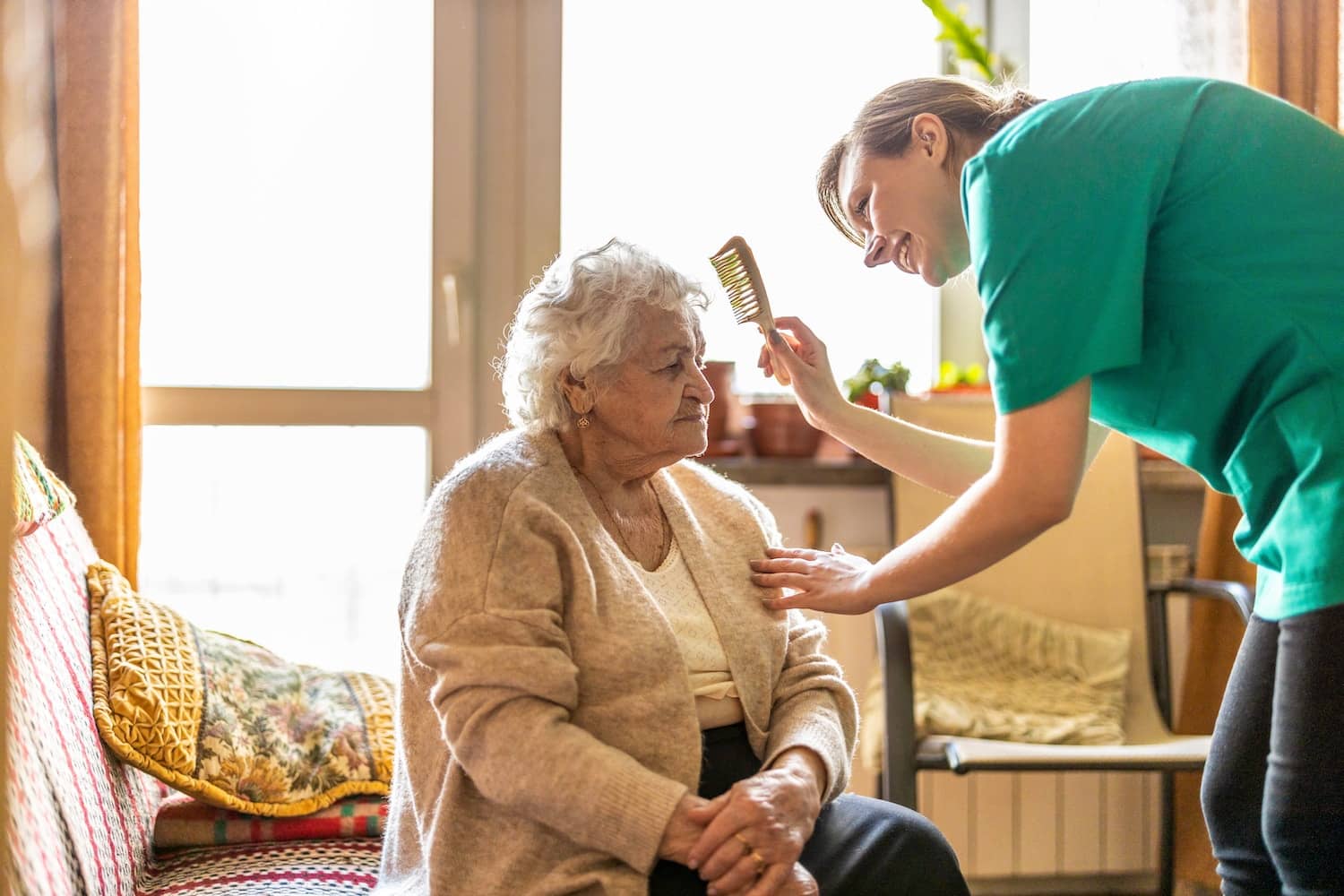Individualized Dementia Care Charlotte: Comprehending Your Family member's Distinct Demands
Individualized Dementia Care Charlotte: Comprehending Your Family member's Distinct Demands
Blog Article
Reliable Dementia Care Strategies for a Better Lifestyle
In the realm of dementia treatment, the implementation of effective techniques is critical for boosting the top quality of life for both individuals impacted by the illness and their caretakers. Recognizing the distinct phases of mental deterioration permits for customized treatments that address the advancing demands of clients-- from promoting cognitive interaction in the early stages to making sure self-respect in late-stage care.
Understanding Mental Deterioration Phases

In the beginning, people may experience light amnesia and problem with familiar jobs. Care strategies should concentrate on maintaining independence and supplying cognitive excitement. The center stage is characterized by raised confusion, problem identifying liked ones, and impaired judgment. Throughout this phase, caretakers ought to apply organized regimens and make sure a safe setting. In the late stage, individuals may shed the capability to connect and need help with daily activities. Below, caring treatment is necessary, emphasizing comfort and self-respect.
Identifying these phases allows caregivers to adjust their strategies and give assistance that lines up with the individual's present demands, ultimately helping with much better monitoring of the problem and enhancing the general caregiving experience. Comprehending mental deterioration stages is as a result a fundamental facet of effective dementia care.
Communication Techniques
Effective communication is an important part of mental deterioration treatment, especially as the disease proceeds with its numerous phases. As cognitive capabilities decline, it comes to be important to adapt interaction techniques to fulfill the demands of people with mental deterioration. Making use of clear, straightforward language is essential; caretakers must prevent complicated sentences and lingo, choosing instead for simple, concise expressions.
Non-verbal communication plays a just as considerable role. Face expressions, motions, and tone of voice can convey heat and understanding, usually boosting verbal messages. Maintaining eye call and an open position fosters a feeling of link and security, urging people with dementia to involve more totally in conversations.
It is also beneficial to hold your horses and permit sufficient time for responses. Individuals might call for additional time to procedure info and develop their ideas. Duplicating or rephrasing concerns might be needed if comprehension shows up lacking.
Lastly, concentrating on the individual's passions and personal background can promote much more meaningful communications. Involving in familiar subjects can stimulate favorable memories and emotions, further enhancing the interaction experience (memory care charlotte). By employing these methods, caretakers can considerably improve the high quality of interactions, advertising self-respect and regard for people dealing with dementia
Creating a Safe Atmosphere
Developing a safe environment for individuals with dementia is vital to advertising their health and independence. A well-designed area can substantially reduce the risks of mishaps and improve the top quality of life for those influenced by this condition. Trick factors to consider include minimizing mess and making certain clear paths to promote flexibility. Getting rid of or securing potential hazards, such as loosened carpets, sharp items, or poisonous materials, is essential in preventing drops and injuries.
Lighting plays an essential role too; using all-natural light anywhere feasible and integrating night lights can aid people navigate their environments securely. In addition, identifying rooms and important items can aid memory and orientation, decreasing complication and anxiousness.
It is likewise important to develop a familiar setting by individualizing the area with photographs or valued items, which can stimulate positive memories and a feeling of belonging.
Integrating furnishings that is both functional and comfy adds to an encouraging environment, permitting people to participate in daily tasks with simplicity. Ultimately, a risk-free environment not just safeguards against physical dangers yet also fosters a complacency, which is necessary for the psychological wellness of those living with mental deterioration.
Involving Tasks and Routines
Engaging activities and organized regimens are vital elements in the care of individuals with dementia, as they promote cognitive feature, emotional stability, and social interaction. These activities must be tailored to the person's passions, abilities, and stage of cognitive decline. memory care facility charlotte. Straightforward, repetitive tasks such as horticulture, arts and crafts, or cooking can supply purposeful interaction, permitting individuals to utilize their skills while fostering a sense of achievement
Developing a day-to-day routine assists develop a foreseeable environment, which can decrease stress and anxiety and confusion. This structure can include assigned times for dishes, tasks, and remainder, ensuring a well balanced approach to every day life. Integrating social interactions right into these regimens, such as team activities or seeing family, further enhances emotional well-being and fights feelings of isolation.
Additionally, physical tasks, such as dancing or strolling, not just advertise physical health and wellness however likewise promote mental engagement. Motivating engagement in neighborhood occasions or assistance groups can give extra possibilities for socializing. In general, the integration of structured regimens and appealing activities is important in improving the high quality of life for individuals with dementia, promoting independence and self-respect while addressing their one-of-a-kind requirements.
Sustaining Caregiver Wellness
Looking after individuals with mental deterioration can be a demanding and psychologically exhausting experience, making it vital to focus on the health of caregivers. Caretakers often face high levels of anxiety, anxiousness, and physical exhaustion, which can lead to exhaustion if not dealt with properly. To sustain their health, it is important to apply a diverse method.
First, giving caregivers with accessibility to education and learning memory care facilities charlotte and resources can encourage them with methods to manage everyday obstacles. Support groups, both in-person and online, supply a system for sharing experiences, fostering a feeling of area, and decreasing sensations of seclusion. Additionally, break care solutions make it possible for caregivers to take needed breaks, permitting them time to participate in and recharge to their own health and wellness requirements.
Furthermore, urging caretakers to take part in self-care methods-- such as routine exercise, healthy eating, and mindfulness-- can significantly improve their durability. Promoting open interaction concerning their sensations and difficulties with member of the family or professionals also helps relieve emotional worries.
Conclusion
In verdict, efficient dementia treatment strategies encompass a comprehensive understanding of the disease's phases, the implementation of clear communication strategies, the facility of a secure setting, and the promo of organized regimens and engaging tasks. In addition, prioritizing the health of caregivers is vital to sustaining high quality treatment. By integrating these techniques, the overall lifestyle for people with dementia can be dramatically enhanced, fostering a supportive atmosphere that promotes self-respect and emotional wellness.
In the realm of mental deterioration treatment, the execution of reliable methods is vital for boosting the quality of life for both people impacted by the disease and their caregivers. By utilizing these strategies, caregivers can significantly enhance the top quality of communications, promoting dignity and regard for people living with dementia.

Caring for individuals with dementia can be a demanding and mentally straining experience, making it vital to focus on the well-being of caregivers.
Report this page